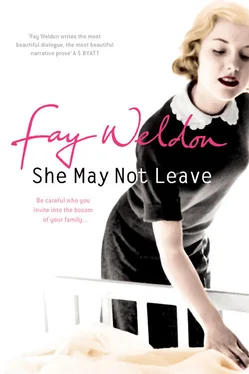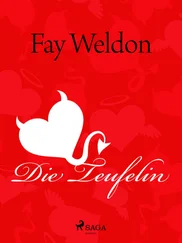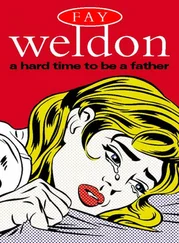Martyn is joined by his editor and immediate boss Harold Mappin, who collapses on an adjacent couch (modelled on one from a first-century Roman fresco) saying ‘they’ve junked almost the entire edition. Except for your Skinflints and Killjoys piece, which went down a treat. How can they call this living? If I don’t have a bit of shut-eye I shall kill myself. Debora’s wearing me out. God save us from younger women.’
There has been some policy change at the top: new health initiatives are proving too expensive for the Treasury: research is showing what Martyn had always suspected – that the more you asked young healthy people to look after their health the less inclined they were to do it: only the already ailing and the elderly bothered. The focus of the autumn issue is now to be devoted to good news rather than grim warnings. Also, circulation is falling – even the Government departments amongst which Devolution is read, themselves victims of spending cuts, are no longer taking the magazine.
All this Harold delivers to Martyn, who is pleased and flattered to be taken into his confidence, while arranging his pillows. More significantly still, he also says that he has changed his mind about transferring Martyn to the Welfare Reform Initiative. ‘Much too dull for a dude like you. We need you in the team. What about a positive piece on the new cholesterol research? What this country needs is good news.’
‘You mean something like Why You and the Chip Butty Can Be Friends? ’ asks Martyn. He is speaking ironically but Harold just says, ‘Exactly’ and falls asleep, not waiting for further comment, arms flung above his head like a small child.
Harold is a large, noisy, hairy man in his fifties, with shrewd eyes. His staff put it about that he is autistic, or at any rate has Asperger’s: they look up the symptoms on the Internet, hoping for grounds for their belief that his communication and social interaction skills are so minimal he can be described as mad, and they can ignore him. Martyn has always got on with him perfectly well.
Martyn goes home encouraged and cheered. He walks to Trafalgar Square and takes the Barnet branch of the Northern Line from Charing Cross back to Kentish Town Station. Many a Westminster worker has taken exactly this route home to Kentish Town since the line was built, a hundred years ago. You walk a little first, both for the exercise and to save the trouble of changing at Embankment. And like so many before him he approaches home with a mixture of emotions: desire to see his family conflicting with a kind of terror that they exist at all. The waiting family is the source of all pleasure and the source of all dread. Once he was young and free: now he has obligations and must not be selfish.
If he is promoted as he can see he might well be, from editor to commissioning editor, his salary will jump by some £6,000 a year. That would mean Hattie could stay home with the baby, and they would no longer need to have an au pair. He wants his house to himself. Hattie, being flesh of his flesh, doesn’t count as another person: Kitty’s arrival had been an upset but she too now feels like an extension of himself, not a foreign body to be eased out.
Privacy had been dearly earned in his growing years – the lad Martyn would sit by himself in the cold in the outside loo and read, just to get a bit of peace – and not even reading had been private: you read the book your teachers said you should read and had to discuss it afterwards, otherwise you didn’t pass your exams and then what became of you? To the man Martyn the idea of a stranger living at close quarters, sharing his table, sharing his television, knowing his secrets, feels nightmarish. Surely the value of money lay not in the things you bought, but in the time, space and privacy it earned for you?
At home, there was at least the peace of familiarity, although currently disturbed and messy and Hattie mad and the baby crying and no food in the fridge. But this peopled privacy was what he had chosen, and what he wanted; it was his delight. His domestic happiness was like a Russian doll, securely weighted at the base. Sleepless nights, wailing baby and wranglings with Hattie about this and that, made it lean so it seemed bound to fall, but then it was certain to bounce back again.
But now Hattie has called him on his mobile, excited and pleased, to tell him the Polish girl is already installed in the spare room – his time, space and privacy has wilfully been breached, and by Hattie, who is meant to be on his side, thinking only of her self-interest. He disciplines his thoughts. He will not think like this. All will be well. No use being a loner in this sharing and caring age. He will go home, fit in with everyone, and behave.
Martyn Comes Home To Agnieszka
Martyn is not prepared for what meets him when he opens the front door: Hattie with her wild hair in order, in a clean, ironed shirt and fresh jeans. She smiles at him as if she were happy to see him, not, as so often these days, with a complaint and an argument ready to spring to her lips. He had forgotten how pretty she is. She is wearing a bra again, so she has two separate breasts not a kind of undifferentiated flesh shelf. Her figure is back to its prebaby state. It probably has been for months but no one, least of all Hattie, has paid it much attention.
‘Kitty’s asleep in Agnieszka’s room,’ Hattie says, ‘and supper’s on the table.’
It is too, and like the old pre-Kitty days: delicatessen food, no longer boiled potatoes and cheap tough chops. Lots of spoons for sauces on the table and little jars of this and that which Hattie has lately derided as a wicked waste and empty calories. But no sign of Agnieszka, who it seems is out at her belly-dancing class.
‘A belly dancer! Our child is to be in the care of a belly dancer?’
‘Don’t be so sad and old-fashioned,’ says Hattie. ‘Belly dancing’s in, forget Pilates. Belly dancing teaches relaxation, muscular control and a healthy mobility.’
Hattie tells him that Agnieszka hopes to become a qualified tutor: even start up her own school in London. She loves dancing. She was even in the Polish Dance Company for a time, on a day-release course during their equivalent of our sixth form. She’d been chosen over hundreds of applicants.
‘I thought she was meant to be learning English over here and then going home.’ Martyn is disconcerted. Perhaps Agnieszka is a figment of Hattie’s imagination? Perhaps she’s in Hattie’s head and nowhere else? It occurs to him that Hattie’s new appearance might be a symptom of a disordered mind. The madness is not in the disorder but in the order?
But the food looks good and Hattie is still smiling and the room is tidy and napkins arranged by the plates, as his mother would do on special occasions. This is not imagination. A fairy god-mother has appeared and set everything right. Martyn’s mother never read fairy stories to her children as a matter of principle: ‘ If they want to read let them do it for themselves .’
‘But what does she looks like?’ he asks. He feels that this is not a question he ought to ask, women’s looks are not up for discussion, and should not be taken into account in the work sphere, but he wants to know.
‘There’s nothing to tell.’ Hattie has to struggle for description. ‘She’s just ordinary. No busty beauty, no long-legged harpy. She looks pleasant enough. She has a flat tummy.
Mine isn’t quite back to normal yet. I might go along to classes with her.’
‘Leaving me to look after Kitty?’ He speaks lightly but already he can feel himself lonely and left behind by two women.
‘A babysitter can look after Kitty if we’re none of us here,’ she says. ‘Once I’m back to work we can afford as many babysitters as we want – or Agnieszka and I could always go on different days.’
Читать дальше












